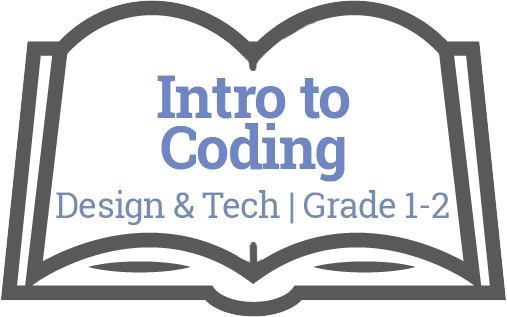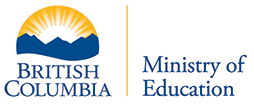
Unit Plan: I Can Code!
Introduction to Coding
Applied Design, Skills & Technology / Grade 1-2

Big Ideas
Skills can be developed through play.
Technologies are tools that extend human capabilities.
Concepts:
- Systems
- Cause/effect
Essential Questions
Students will keep considering…
- How can I express myself to achieve a goal?
Evaluative Criteria
N/A
Monitoring Progress
Formative Assessment
- Code.org progression through levels
- Teacher monitoring: partner work, group work, class work (successfully competing tasks, using appropriate vocab, etc.)
Summative Assessment
- See performance task
Resources
Websites
Other
- Paul Clarke and Justine Frazee – District Helping Teahcers for Technology
Reflection
How will teachers reflect on and evaluate the completed project?
What aspects of the unit went well?
What did students struggle with?
What did you struggle with?
What would you add/revise the next time you taught this unit?
Were there any unintended outcomes?
Were students engaged?
Downloads
Stage 2 – Evidence
Authentic Performance Tasks
AUTHENTIC PERFORMANCE TASK: Assessing for Understanding
Students will be able to demonstrate their understanding by:
PERFORMANCE TASKS RATIONALE: All of the following activities require students to be actively engaged in the learning task. Students will assume roles, argue opinions, share anecdotes, challenge classmates, debate issues, consume products, analyze human behavior, create authentic metrics, and make recommendations. For some students these activities will come easily. For others, teacher encouragement will be needed. Teachers will pay close attention to creating a safe atmosphere in the class for students to express personal opinions. They will also encourage all students to take risks with their learning when debating, role playing, or playing simulation games using curriculum material that is new to them.
PERFORMANCE TASK:
In groups, students create messages or images on grids outside (or in gym) by giving each other simple directions, using coding language as learned on code.org. (e.g. flower, sun, letter, short word, etc). More info below.
Other Evidence
N/A

The following resources are made available through the British Columbia Ministry of Education. For more information, please visit BC’s New Curriculum.
Big Ideas
The Big Ideas consist of generalizations and principles and the key concepts important in an area of learning. The Big Ideas represent what students will understand at the completion of the curriculum for their grade. They are intended to endure beyond a single grade and contribute to future understanding.
Core Competencies
 Communications Competency
Communications Competency
The set of abilities that students use to impart and exchange information, experiences and ideas, to explore the world around them, and to understand and effectively engage in the use of digital media
 Thinking Competency
Thinking Competency
The knowledge, skills and processes we associate with intellectual development
 Social Competency
Social Competency
The set of abilities that relate to students’ identity in the world, both as individuals and as members of their community and society
Curricular Competencies & Content
Curricular Competencies are the skills, strategies, and processes that students develop over time. They reflect the “Do” in the Know-Do-Understand model of curriculum. The Curricular Competencies are built on the thinking, communicating, and personal and social competencies relevant to disciplines that make up an area of learning.
Additional Resources
First People's Principles of Learning
To read more about First People’s Principles of Learning, please click here.
For classroom resources, please visit the First Nations Education Steering Committee.
